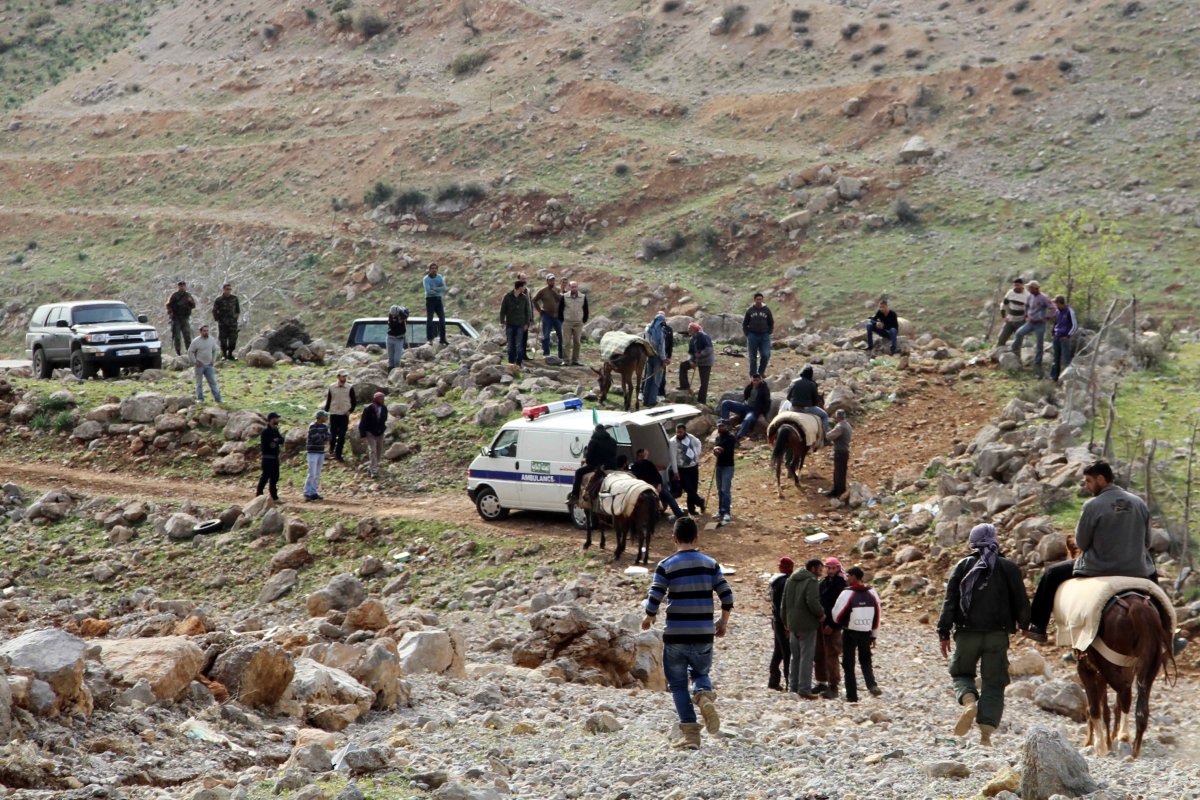The humanitarian crisis brought on by the civil war in Syria continues to escalate, with the United Nations saying this week almost one-third of the country’s population is in need of help.

There are an estimated 4.25 million people considered internally displaced. The number of refugees who have fled or will flee the war-torn country could hit three million by the end of this year.
Hundreds of thousands of refugees are now living in camps in the neighbouring countries of Jordan, Iraq, Turkey and Lebanon.
Lebanon has accepted a lion’s share – almost 460,000 refugees, equivalent to about one-tenth of the country’s population.
Although Canada has dedicated $48.5 million to humanitarian assistance through organizations such as the UN World Food Program, the government does not have plans to take Syrian refugees.
Members of Parliament, in an emergency debate in the House of Commons Tuesday night, called on the Canadian government to address the crisis and how it plans to assist or intervene.
“We need to bring some refugees to Canada,” Ahuntsic, Que. MP Maria Mourani said in a phone interview with Global News. She said that’s the only way to help ease the pressure on Lebanon and other countries dealing with the influx of people escaping the conflict.
Foreign Affairs Minister John Baird has said Canada does not yet have plans to send military forces to Syria.
Mourani, whose family lived through Lebanon’s civil war, urged the government to keep its focus on humanitarian assistance.
She told Global News the federal government has not dedicated enough funding to the situation in Lebanon and should be opening its doors to refugees with families living in Canada.
“Their families want to take care of them,” she says of the Syrians she has spoken with in Canada. She accepts the fact that Canada can’t take all refugees, but says that taking some would not burden the government because of support from relatives living in Canada.
“They say, ‘Just give them the possibility for them to come here and we’ll take care of them.’”
She also said the Canadian government needs to understand that it’s not just official organizations in Lebanon that are dealing with the refugee crisis. Many churches and community groups, for example, are providing assistance, but don’t get any assistance from foreign governments, according to Mourani.
Canada has focused on helping Jordan, which is second only to Lebanon for the number of refugees it has accepted – taking in an estimated 448,000 people of concern.
The Conservative government recently pledged and additional $13 million to help Jordan cope with its 448,000 refugees. That was in addition to $11.5 million it had already provided.
Foreign Affairs has recently strengthened its ties with Jordan and sees that country as a much closer ally.
“We have paid particular attention to the pressing needs in Jordan. That has been deliberate,” Baird said during Tuesday’s debate.
Baird said last month, Jordan had “consistently demonstrated a leadership role, in the pursuit of a just and lasting peace in the Middle East.”
Canada only gives humanitarian assistance to UN agencies working on the ground and not to recipient countries or their governments.
That includes $7.5 million to the World Food Program, $15.35 million to UNHCR and $2.5 million to UNICEF, for assistance in five countries taking refugees.
But the additional support given to Jordan has been more related to infrastructure – such as tents and transportation capabilities and protective gear for the army.
An official with the Dept. of Foreign Affairs said the Jordan and Lebanon’s roles in the Syrian conflict are much different, adding Jordan is “much more outspoken about Assad.”
Baird, in his comments Tuesday night, pointed out Lebanon’s Hezbollah as one of the foreign groups backing Salafist, jihadist and radical extremist groups making the conflict worse. Hezbollah’s political wing is essentially controlled Lebanon’s government, until the government’s recent collapse. Lebanon,
Meanwhile, Israel’s recent aerial attacks on Syria are said to have been an effort to preempt the transfer of weapons from Syria to Hezbollah.
But, not paying sufficient attention to the Syrian refugee situation in Lebanon could have drastic consequences, says Mourani.
She said that extremist groups infiltrate the refugee camps, particularly in the north near Tripoli, that could recruit vulnerable people.
Mourani said that should not preclude helping innocent people, most of whom are seeking safety.
The Minister of Citizenship and Immigration Jason Kenney taking Syrian refugees because it is not yet feasible to deal with a resettlement issue of this scope.
“Anyone who thinks we can just kind of bring people in by the tens of thousands I think doesn’t understand the complexity of that situation,” Kenney said at a news conference on Mar. 28.
He said the government is supporting UNHCR in its efforts in dealing with the humanitarian crisis and is not taking refugees because the UN agency is not yet referring them.
“Canada respects the position of the UNHCR that they are not yet contemplating the resettlement of Syrian refugees,” Alexis Pavlich, Kenney’s press secretary, said in an email to Global News.




Comments